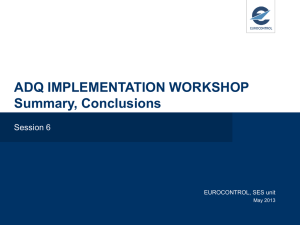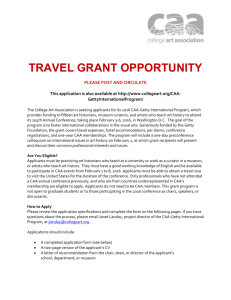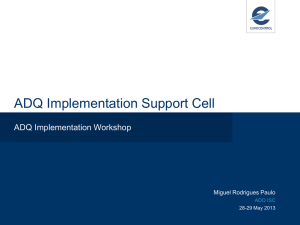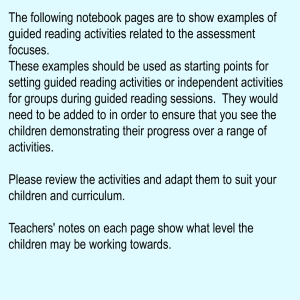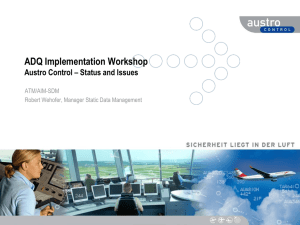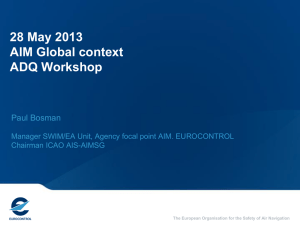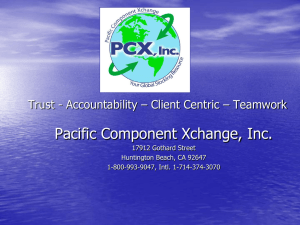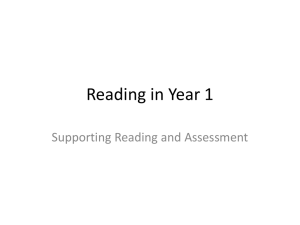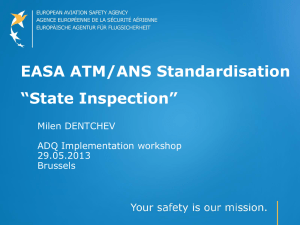Item 4-a - Oversight - UK CAA
advertisement
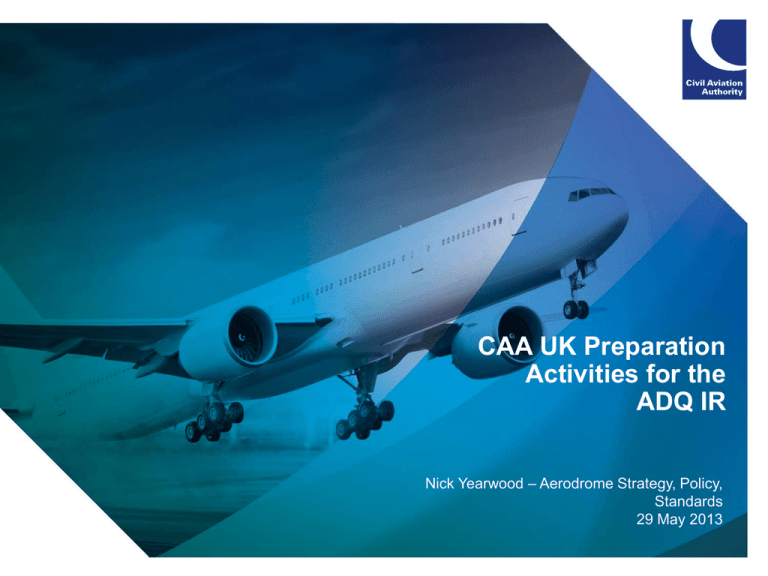
CAA UK Preparation Activities for the ADQ IR Nick Yearwood – Aerodrome Strategy, Policy, Standards 29 May 2013 1 Do we need to change CAA policy and/or procedures? Art 8. Review CAA policy documents and/or procedures relating or referring to origination, management and/or publication of aeronautical information in the UK IAIP. Consider the impact of Art 2(2b) on non EASA aerodromes which publish special VFR entry/exit procedures. Art 6. CAA to develop guidance for aerodromes that fall within scope by virtue of SVFR requirements. CAA need to reflect in audit / inspection protocols for Art 7(5) personnel performance. May 2013 2 Do we need to initiate a change to National legislation? National legislation will be required for any delegation of Member State functions from DfT to CAA, and also to deal with sanctions for non-compliance 3 Do we need to amend CAA Publications (CAP) and other associated documents? Art 2. New CAP has been drafted by DAP and is now undergoing Public Consultation . The CAP includes: ADQ IR Generic Requirements ICAO/ADQIR Aeronautical Data Data Quality Requirements Information Process & Data Specifications Submission Requirements Regulatory Oversight 4 Do we need to alert the Military Aviation Authority to any aspects of the regulation? • MOD is aware and intends to comply with CAA policy and ADQ IR. • MOU will be established between CAA and MOD for provision of Military data in-scope of the ADQ IR regulation. The MOU will specify appropriate regulatory oversight arrangements. 5 Do we need to amend approval documentation such as licences, certificates, approvals? Art 2 - CAA to review NATS Licence in light of this regulation to determine if its requirements are fully addressed in the Operational Specification for AIS. Approvals and/or Certification e.g. Aerodrome, ANSP, AISP licensing, Procedure Design Approval, must include requirements to conform to ADQ IR provisions to enable enforcement capabilities. 6 Are there any new associated Training requirements for CAA staff? Art 7(5) CAA oversight for ADQ IR will require additional staff who will need an understanding of a number of subjects, such as QMS, Data Assurance, Data Quality, Safety, Security, Software/System verification and conformance. In-line with current CAA strategy a risk based approach to regulation of all parties (aerodromes, ANSP, IFP designers, surveyors) in-scope of ADQ IR will need to be implemented by the CAA. 7 What are the implications for the UK/Ireland FAB? Non-compliance to ADQ IR by either party could affect FAB relationships. This will be raised at the next FAB safety harmonisation working group. 8 Does information and guidance on these regulatory aspects need to be publicised to UK industry? Art 5(2). CAA industry workshops initiated in 2012 and further workshops planned in 2013. CAA/Aerodrome pilot projects initiated in March 2013 to assess aerodrome comprehension of CAA policy and ADQ IR compliance capabilities. Art 10. CAA will focus on key areas of the ADQ IR (e.g. the QMS elements of the IR) further guidance will be necessary in many areas. 9 Do we need to amend sections of the UK AIP? Art 2. All AIP data and information with an assigned assurance level will be updated as a consequence of the IR requirements. Aeronautical Data with new quality attributes will replace existing data. All legacy data in scope will need to be renewed before the end of June 2017. Consequential impact on aerodrome survey periodicity i.e. surveys will require additional ADQIR meta-data, and alignment with ICAO 5 year review of IFP. 10 Other ADQ IR related issues In support of a DAP comms plan to communicate with aerodromes, AATSD inspectors will need to be liaising with aerodromes and providing advice and guidance towards ADQ IR compliance. As a priority, prime the inspectors with key messages with regards to what we are doing in relation to this IR and any indicative position(s). Work is in hand to address availability of electronic Terrain & Obstacle Data (eTOD) as required by Annex 1 Part b (a) of the ADQ IR. 11 ADQ Constituents Origination, production, storage, handling, processing, transfer and distribution equipment can be considered as constituents requiring a Declaration of Conformity or Suitability for Use. Guidance needed for constituent definition and conformance – link to CATF Guidelines. Further clarification is required to determine if all aerodromes are considered ANSP and therefore subject to Article 5, 2 provisions for exchanging aeronautical data. 12 Eurocontrol ADQ specifications specified as guidance in CAA policy for compliance to ADQ IR Data Assurance Levels (DAL) Data Quality Requirements (DQR ) Data Origination (DO) eAIP Specification (eAIP) Aeronautical Information Exchange (AIX) 13 ADQ Implementation Risks Consumer and Public Risks • • • • • Provision of quality assured data not achieved New concepts of operation cannot be supported Efficient/dynamic use of airspace not realised Unable to meet forecast increase in flights Potential for enhanced flight safety not realised Strategic Risks • • • • • • Not understanding consumer risk/addressing wrong risk Pursuing the wrong strategies, policies, and approach Significant gaps in corporate capability Financial threats Relationship risks e.g. political, international, industry Data contributors fail to comply with ADQ requirements Business Risks • • • • • • Infraction proceedings Inadequate technical skills to carry out a role Poor application of management skills Errors in business plan Project risks Threats to business continuity 14 ADQ Implementation Risks • Inadequate policy/guidance; • Regulation deadlines not met; • Stakeholders do not comply with requirements • Inadequate CAA enforcement regime • Infraction Proceedings. 15 Mitigating Implementation Risk Understand practical implications of ADQIR compliance on stakeholders; Provide Develop advice and guidance to project candidates; oversight methodology based on experience gained; Develop further guidance material for all stakeholders. Stakeholder Projects 16 Stakeholder Pilot Project - Candidates Major international airport (agreed) Small licensed aerodrome (pending) Aerodrome Survey company/Approved Procedure Designer of IFP. (pending) MoD data originator/provider (agreed) 17 QUESTIONS? Thank you for your attention 18

